Trying to understand memory allocation in C. Facing issue while trying to create two arrays using pointer to integers. Kindly have a look at the below code:
#include <stdio.h>
#include <stdlib.h>
int main() {
int *a;
int *b;
for (int i = 0; i<4;i++)
{
printf("Enter value \n");
a[i]=(int *)malloc(sizeof(int));
b[i]=(int *)malloc(sizeof(int));
scanf("%d",&a[i]);
scanf("%d",&b[i]);
}
for (int i =0;i<4;i++)
{
printf("%d = %x\n ",a[i],&a[i]);
}
for (int i =0;i<4;i++)
{
printf("%d = %x\n ",b[i],&b[i]);
}
return 0;
}
I am working with C11 on CLion. Facing below error on runtime. Can someone please explain what is wrong with this code ?
Enter value
Process finished with exit code 11
"b is being shown NULL during debugging"
UPDATE: Tried on another IDE, where "a" itself is not being allocated any memory. It directly gives me segmentation fault.
UPDATE 2: Changing:
int *a;
int *b;
to
int *a = NULL;
int *b = NULL;
at least stops how this code is behaving. It gives me segmentation fault as soon as I try to allocate memory to a[i] (Which is wrong, now I get).
